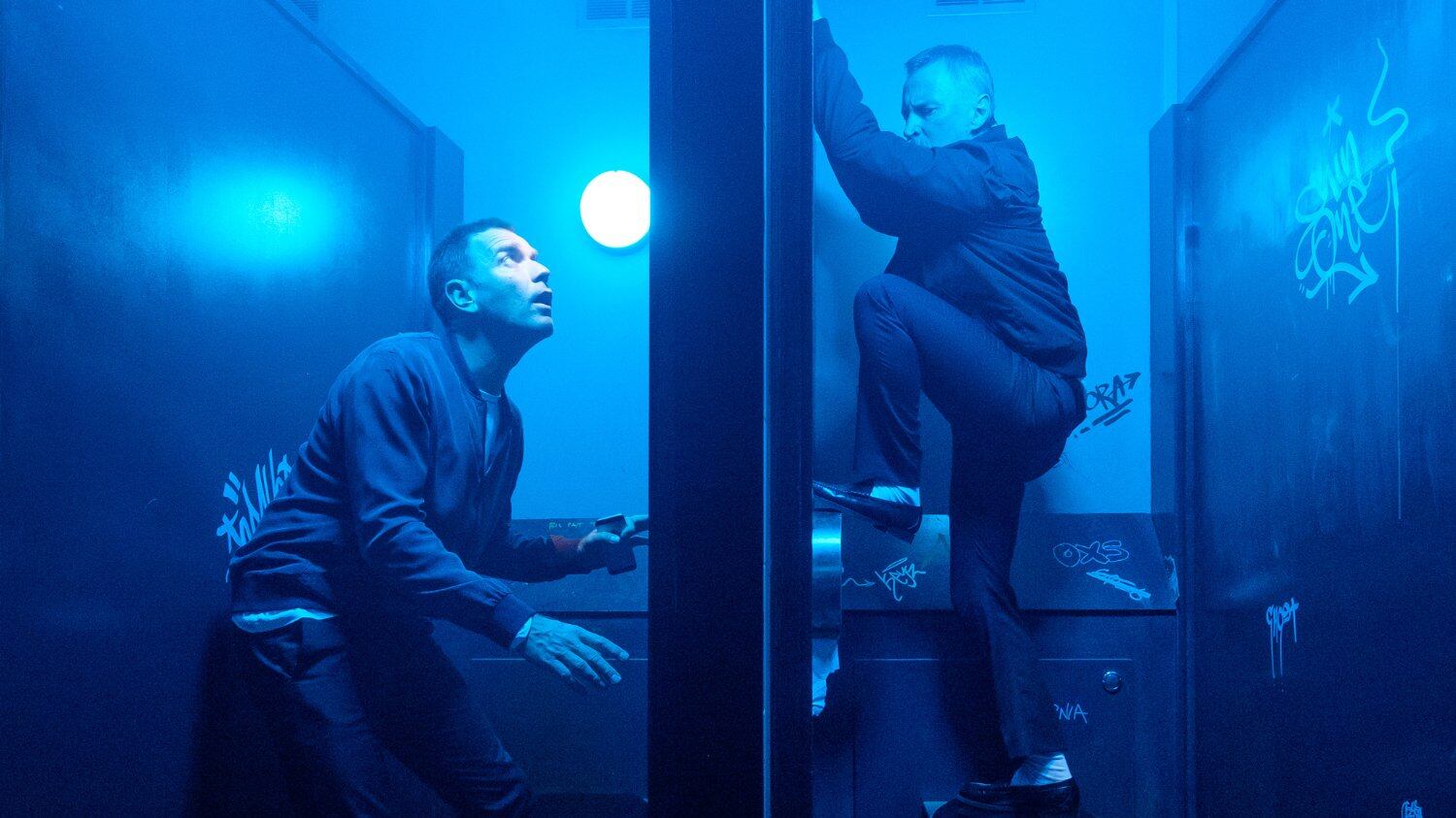It's been 21 years since Trainspotting turned a blackly-comic druggie caper into generational touchstone, spiking the careers of all involved. Renton (Ewan McGregor) was young Obi Wan. Begbie (Robert Carlyle) and Sick Boy (Jonny Lee Miller) currently play Rumpelstiltskin and Sherlock for network hits. Spud (Ewen Bremner) has to be counting the days til someone offers a live-action Nobby The House Elf showcase. Director Danny Boyle (and personal screenwriter John Hodge) had time enough to fulfill his own Hollywood redemption arc. And Irvine Welsh, graying Bad Boy emeritus of UK fiction whose drug-laced reveries provided the original source material, kept chronicling the future exploits of Edinburgh's favorite junkies, though absent the literary aspirations of yesteryear. As supposed inspiration for new filmic sequel T2 Trainspotting, Welsh's 2002 novel Porno chose to squander a reunion with beloved characters midst lurid sex industry travelogue, and, well, why would the filmmakers want to do a thing like that? Who needs plot when you've got movie stars?
Opening with Renton's return to Scotland after hiding around Amsterdam the past twenty years—biding his time with a failed marriage, vapid career and an ex-junkie's love of jogging —we soon enough run across Begbie's successful prison break, Spud's failed suicide, and Sick Boy's half-hearted blackmail scam. The closest we come to a central storyline concerns Sick Boy's plans to make a state-of-the-art brothel from his aunt's abandoned pub via council development funds, but audiences shouldn't expect much more than skillful remembrances of youthful glories. For better or worse, homecomings and the eternal allure of yesteryear's vices tend to sprawl outside the bounds of narrative.
Visiting the grave of the first film's AIDS casualty Tommy, Sick Boy accuses Renton of playing tourist within his own past, but the same charge infects them all. Veronika, hopeful house madam and focal point of a not-quite-romantic triangle further dividing the best mates, watches entranced and appalled as the pair celebrate a successful scam through duelling coked-up monologues about the good old days. It's a funny, nifty scene laced with effortless stylistic flourishes that underline the influence of Boyle upon post-Guy Ritchie UK pulp cinema and how glib and workmanlike his successors became. Moreover, by setting our anti-heroes' self-mythologizing against Veronika's own willfully-blocked horrors or the waking nightmare of Spud's all-too-clear-eyed recall, T2 doesn't quite indulge the same melancholy high of romanticized origins.
Despite all the political furor sparked by that rarest of birds – a visually-inventive, addictively-watchable, unabashedly-entertaining no-frills thrill ride that dared to illustrate the towering heights of serious junkiedom as well as the barbarous depths – Trainspotting wasn't really about the drugs. Heroin may have served as an internal motor for the desperate antics of nihilist layabouts, but finding their fix was only the most dangerous aspect of charming egotists' teenage kicks. If you can survive the first rush of freedom and weather the inevitable hangover of crashing dreams, nostalgia becomes the last true habit. In the end, despite all efforts to the contrary, life chooses you.
Critic's Rating: 3/4 Stars.

